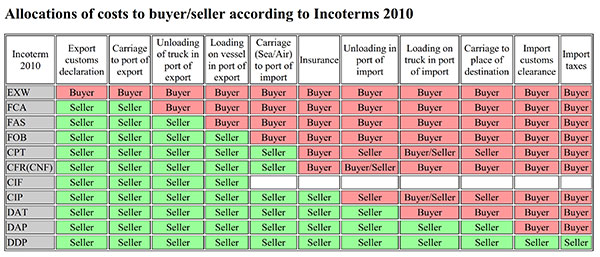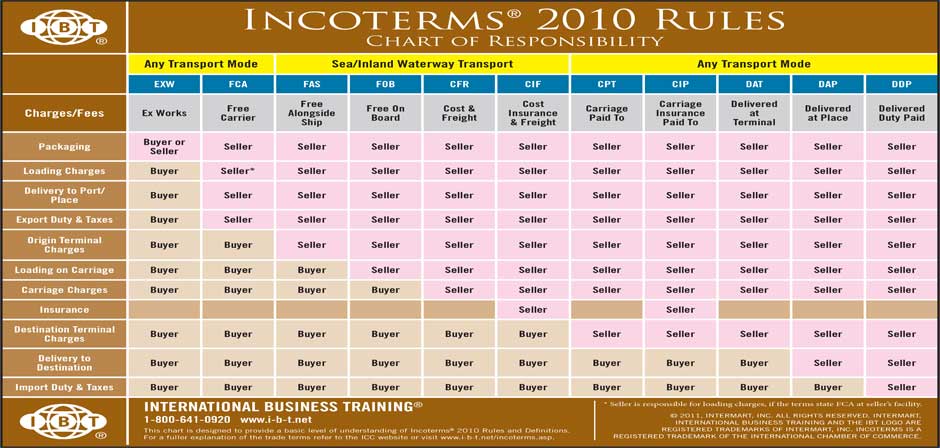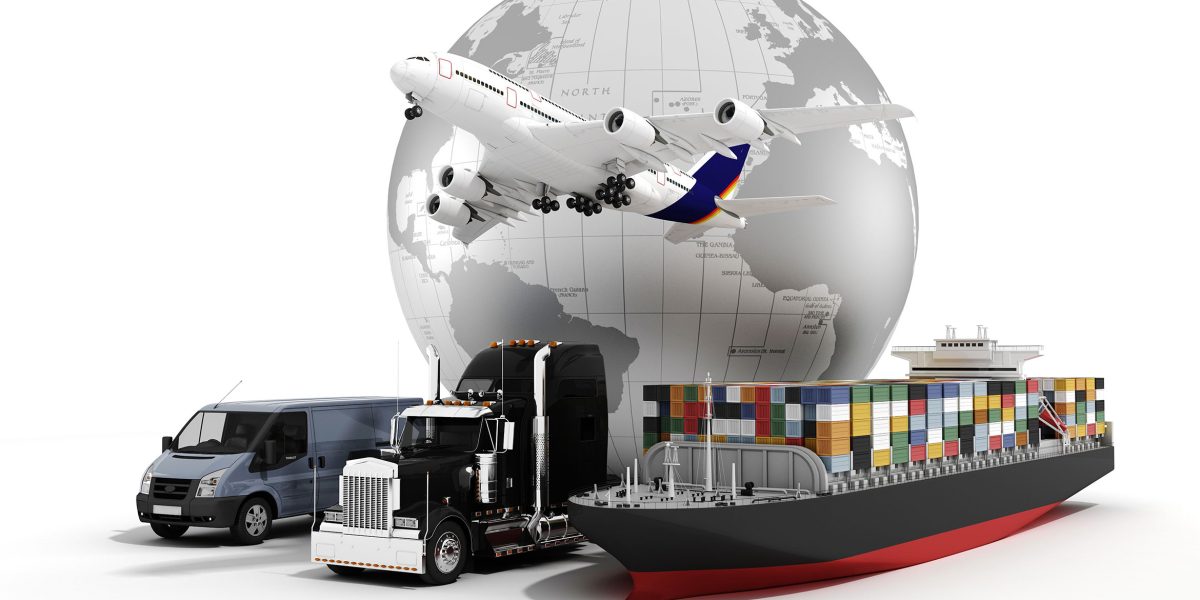GroupEXW: Ex Works (named place)
EXW: Ex Works
Definition: The seller makes the goods available at his/her premises
GroupFCA: Free Carrier (named place of delivery)
FCA: Free Carrier
Definition: The seller delivers the goods, cleared for export, at a named place. This can be to a carrier nominated by the buyer, or to another person nominated by the buyer.It should be noted that the chosen place of delivery has an impact on the obligations of loading and unloading the goods at that place. Shipping and insurance costs with the buyer. Concluding a shipping and insurance contract with the buyer
FAS: Free Alongside Ship
Definition: Free alongside (FAS) is a term used in international trade contracts that indicates that the seller must arrange for the goods purchased to be delivered next to a particular vessel in a particular port in order to be ready for transfer to a waiting ship. Shipping and insurance costs with the buyer. Concluding a contract of transportation, insurance and inspection with the buyer.
FOB: Free on Board (named port of shipment)
Definition: FOB means that the seller pays for delivery of goods to the vessel including loading The seller must also arrange for export clearance. Shipping and insurance costs with the buyer. The buyer pays cost of marine freight transportation, insurance, unloading and transportation cost from the arrival port to destination. The buyer arranges for the vessel

Group CFR – Cost and Freight (named port of destination)
CFR: Cost and Freight
Definition: Seller must pay the costs and freight to bring the goods to the port of destination. C&F However, risk is transferred to the buyer once the goods are loaded on the vessel Insurance for the goods is NOT included. Shipping costs with the seller. The Shipping contract is with the buyer The insurance contract is with the seller
CIF: Cost, Insurance and Freight (named port of destination)
Definition: Exactly the same as CFR except that the seller must in addition procure and pay for the insurance For sea transportation. a trade term requiring the seller to arrange for the carriage of goods by sea to a port of destination, and provide the buyer with the documents necessary to obtain the goods from the carrier. Shipping and insurance costs with the seller. Concluding a shipping and insurance contract with the seller.
CPT: Carriage Paid To (named place of destination)
Definition: CPT replaces the venerable C&F (cost and freight) and CFR terms for all shipping modes outside of non-containerised seafreight. The seller pays for the carriage of the goods up to the named place of destination. Risk transfers to buyer upon handing goods over to the first carrier at the place of shipment in the country of Export. insurance costs with the buyer. Concluding an inspection contract with the buyer.
CIP: Carriage and Insurance Paid to (named place of destination)
Definition: This term is broadly similar to the above CPT term, with the exception that the seller is required to obtain insurance for the goods while in transit. CIP can be used for all modes of transport, whereas the equivalent term CIF can only be used for non-containerised seafreight. Shipping and insurance costs with the seller. Contract insurance and shipping with the seller. Concluding an inspection contract with the buyer.

Group D Delivery of goods to the destination
DAF: Delivered at Frontier (named place of delivery)
Definition: This term can be used when the goods are transported by rail and road. The seller pays for transportation to the named place of delivery at the frontier. The buyer arranges for customs clearance and pays for transportation from the frontier to his factory. The passing of risk occurs at the frontier.
DES: Delivered Ex Ship
Definition: Where goods are delivered ex ship, the passing of risk does not occur until the ship has arrived at the named port of destination and the goods made available for unloading to the buyer. The seller pays the same freight and insurance costs as he would under a CIF arrangement. Unlike CFR and CIF terms, the seller has agreed to bear not just cost, but also Risk and Title up to the arrival of the vessel at the named port.
DEQ: Delivered Ex Quay
Definition: This is similar to DES, but the passing of risk does not occur until the goods have been unloaded at the port of discharge. This is no more. In ICC 2010 it is deleted
DDU: Delivered Duty Unpaid
Definition: This term means that the seller delivers the goods to the buyer to the named place of destination in the contract of sale. A transaction in international trade where the seller is responsible for making a safe delivery of goods to a named destination, paying all transportation expenses but not the duty.
DDP: Delivered Duty Paid
Definition: Seller is responsible for delivering the goods to the named place in the country of the buyer, and pays all costs in bringing the goods to the destination including import duties and taxes. The seller is not responsible for unloading. This term is often used in place of the non-Incoterm “Free In Store (FIS)”. This term places the maximum obligations on the seller and minimum obligations on the buyer.




